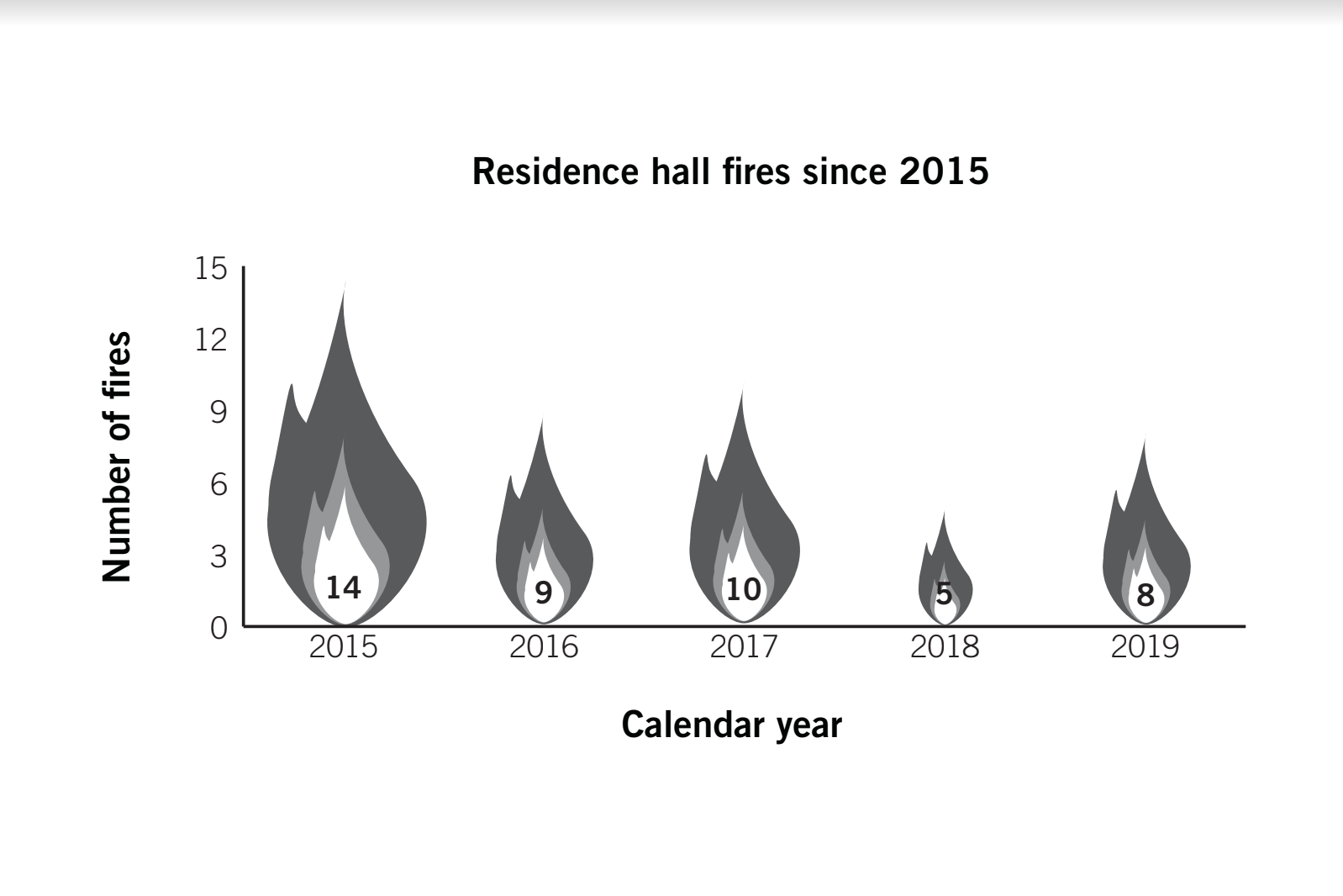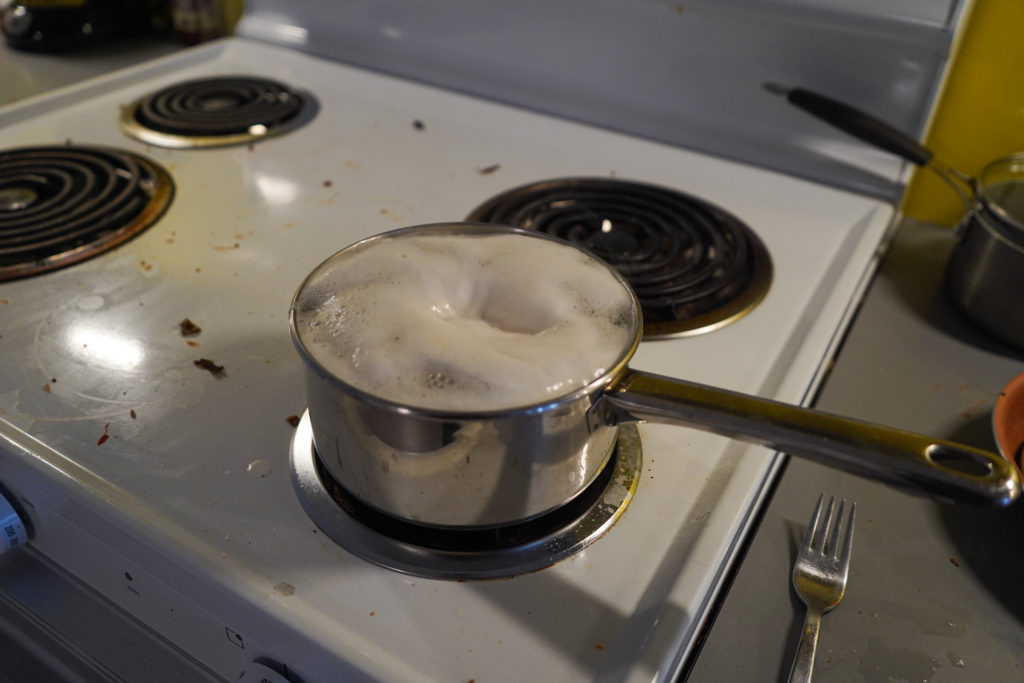After on-campus fires hit a nine-year low in 2018, residence hall fires are on the rise again.
Eight fires occurred in 2019 – the majority of which started from a kitchen appliance, like a microwave or stovetop – compared with five in 2018, according to GW’s annual fire log. Fire safety experts said GW’s year-to-year variation is fairly low relative to the number of students who live on campus, and students should vigilantly attend to their cooking and use proper extension cords to prevent starting a fire in their residence hall room.
University spokeswoman Crystal Nosal said the fires that occurred in 2019 – which all started from unsafe cooking practices or banned items, like candles and toaster ovens – could have been prevented.
She said the Division of Safety and Security and Campus Living and Residential Education posted fire prevention safety content in the lobby of each residence hall this academic year and held a Student Advisory Board meeting dedicated specifically to fire safety.

Alyssa Ilaria | Graphics Editor
caption
Two fires have occurred so far since the start of the 2020 calendar year – a stovetop fire in Fulbright Hall and a stovetop fire in District House, according to the fire log.
Nosal said officials are not aware of any fires other than the incidents listed on the daily fire log. She said students should follow University policies about banned items to prevent fires on campus.
“Students should take the policy on banned items seriously and avoid bringing those items into residence halls,” she said. “If students are cooking, they should supervise the cooking tools at all times.”
Vito Maggiolo, a spokesperson for D.C. Fire and Emergency Medical Services, said GW’s three-fire uptick is too small of an increase to draw a significant causal analysis. He said the majority of fires on campus from the past two years have started in a residence hall kitchen, which students can prevent by not leaving cooking unattended.
“Don’t be trying to cook when you’re under the influence of alcohol, or anything else for that matter, because your judgment may be impaired, and that could lend itself to a fire starting with cooking,” Maggiolo said.
He said students should heed the University’s fire policies, like keeping the smoke alarm turned on and not using candles in the room, to ensure fire safety in residence hall rooms.
Maggiolo said a fairly low number of fires occur at GW given the large number of students living in residence halls. GW houses about 7,400 students, according to the housing website.
American University, which sleeps about 4,000 undergraduates, sustained just one residential fire in 2019, according to the university’s daily fire log. Georgetown University tallied one fire in 2018, according to its annual fire safety report.
Maggiolo said D.C. FEMS will send about 40 firefighters for any report of a fire in a large building, like a residence hall. He said firefighters will work with GW Police Department officers to file students out of the building and communicate how students should evacuate in case of a fire.
He added that students should remember to close the door behind them while evacuating a fire to contain the fire’s flames and heat.
“If you leave the door open, the heat and smoke and fire will spread from that room to other areas of the building,” Maggiolo said.
Andrew Roszak, the executive director of the Institute for Childhood Preparedness, which trains children and early childhood educators on emergency preparedness, said an uptick in fires at universities sometimes occurs in the winter months when many students misuse additional heating units in their residence halls.
“What you have to take into account is variance just based on the season so I mean, like right now in D.C., we’ve got this big cold coming through, which probably means people are going to start looking for alternative heat sources,” Roszak said.
A heating unit in Thurston Hall caught fire in October, according to the annual fire log.
Roszak said universities with a large number of housing options present more opportunities for fires to occur, resulting in a higher yearly average of sustained fires.
“GW is, I wouldn’t say it’s an outlier, I would say it’s pretty standard for what you’re seeing across most college campuses,” he said.
Roszak said distractions while cooking, like falling asleep or taking a phone call, can often lead to fires erupting in a kitchen.
“It’s the person that is cooking on the stove and then answers a phone call or an Instagram or a Tik Tok or whatever and gets distracted and forgets the pot’s on the stove and now it’s boiling over,” he said.




